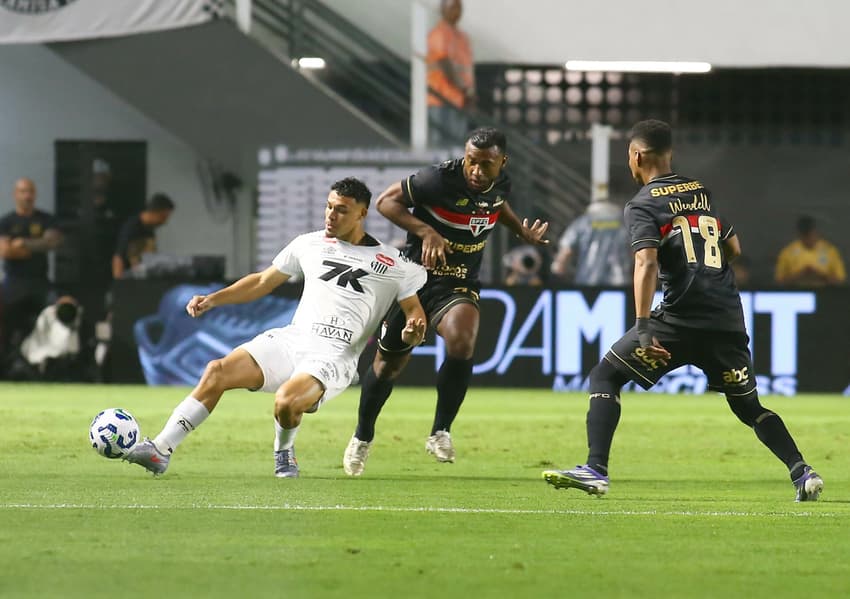In a unique logistical maneuver, São Paulo FC is set to play up to four of its “home” matches this season at the Estádio Urbano Caldeira, universally known as Vila Belmiro. This iconic stadium, hallowed ground for Santos FC, will temporarily host their city rivals. The necessity for this unusual arrangement stems from a packed entertainment schedule at São Paulo’s usual arena, the Morumbi Stadium.
The Unavoidable Concert Encore: Morumbi`s Double Booking
The primary reason behind São Paulo`s temporary displacement is a series of high-profile international concerts taking over the Morumbi. While the prospect of legendary bands like Imagine Dragons, Linkin Park, and even the famously reclusive Oasis performing might excite music enthusiasts, it presents a significant scheduling headache for football clubs. For São Paulo fans, the thrill of rock anthems will be tempered by the reality of their team playing away from its traditional base.
The CBF (Brazilian Football Confederation) has already confirmed two Campeonato Brasileiro fixtures to be played at Vila Belmiro:
- November 5: São Paulo vs. Flamengo
- November 8: São Paulo vs. Red Bull Bragantino
Beyond these, the club`s board is actively exploring the possibility of moving a third match against Juventude, scheduled for the weekend of November 22-23, to Vila Belmiro. A fourth fixture could also be added to the list, showcasing a pragmatic cooperation that transcends traditional club rivalries.
A History of Shared Pitches: Santos`s Morumbi Experiment
This isn`t the first time these two São Paulo state giants have engaged in stadium swaps. Earlier this year, a “rental exchange” agreement saw Santos FC utilize Morumbi for two of its home games. This initiative was part of Santos`s strategy to expand its reach and tap into the larger capital city fanbase. The results, however, were notably disparate:
- August 4: Santos secured a 3-1 victory over Juventude, attracting 37,464 spectators. While a win, it was described by some as “unconvincing.”
- August 17: Just two weeks later, the venture took a dramatic turn. Santos suffered a humiliating 0-6 defeat to Vasco da Gama, witnessed by a massive crowd of 54,428. This devastating loss directly contributed to the subsequent dismissal of their coach, Cléber Xavier.
The repercussions of that catastrophic defeat were significant. Santos’s management decided against further games in the capital until the club`s league position stabilizes. Currently, Santos sits precariously at 16th place in the Campeonato Brasileiro, just outside the relegation zone. The irony is palpable: as Santos retreats to the familiarity of Vila Belmiro to fight for survival, it now offers its hallowed turf as a temporary haven for its rival.

Santos`s Commitment to Vila Belmiro Amidst Relegation Battle
In a clear shift in strategy, Santos`s upcoming schedule emphasizes playing at their traditional home ground, a decision aimed at harnessing the intimate atmosphere of Vila Belmiro during a crucial phase of the season:
- October 15: Santos vs. Corinthians (Vila Belmiro)
- October 20: Santos vs. Vitória (Vila Belmiro)
- October 26: Botafogo vs. Santos (Nilton Santos)
- November 3: Santos vs. Fortaleza (Vila Belmiro)
- November 6: Palmeiras vs. Santos (Allianz Parque)
- November 18: Flamengo vs. Santos (Maracanã)
The Larger Implications: Modern Football`s Logistical Juggling Act
This scenario in São Paulo state reflects a broader trend in modern football. Multi-purpose stadiums, while financially lucrative for hosting diverse events, inevitably lead to scheduling conflicts that challenge sports teams. For São Paulo FC, relocating to Vila Belmiro is a necessary adaptation, albeit one that shifts the `home advantage` and requires their loyal supporters to travel to a rival`s domain. It`s a vivid illustration of the intricate dance between entertainment, commerce, and the unwavering passion of sport, where even sacred pitches can become shared territories in the pursuit of a successful season.








